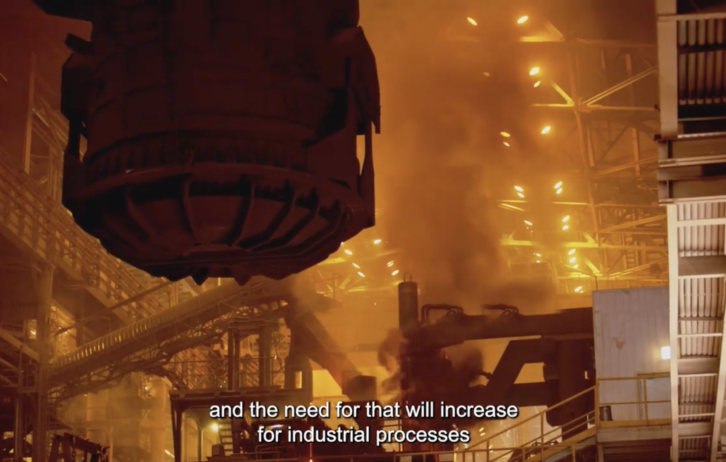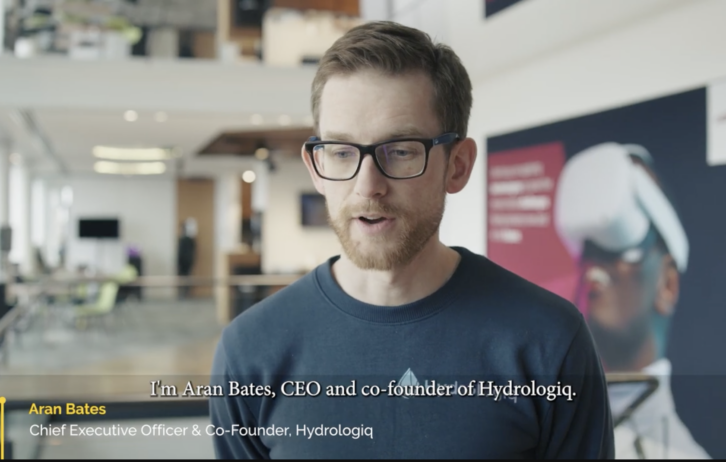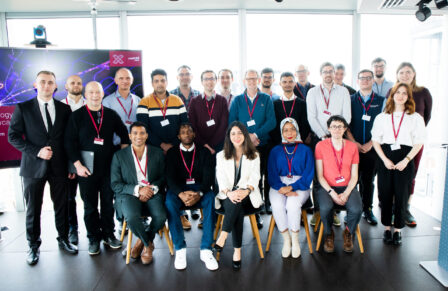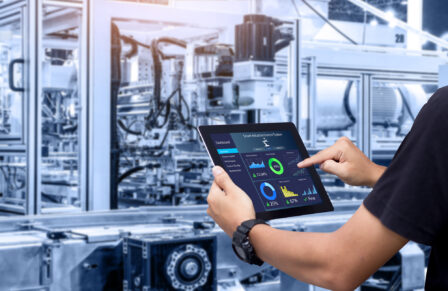Everything you need to know about hydrogen technology
Posted 21 Mar 2024
Everything you need to know about hydrogen technology
What are hydrogen technologies?
Hydrogen technology refers to the ways of producing, distributing, and consuming hydrogen as a source of renewable energy. Hydrogen technology could support the UK in reaching its net zero targets in preventing climate change whilst at the same time driving industrial transformation for the global hydrogen economy.
Hydrogen has long been touted as the answer to replacing natural gas in electricity production, allowing individuals and organisations to continue to use electricity but with zero carbon emissions, in everything from the production of metals, ceramics, glass, cement, and industrial chemicals, to greener transportation over land, air, and sea without reliance on burning fossil fuels. 85% of UK homes and 40% of the country’s electricity currently rely on gas.
Digital Catapult is playing a vital role in supporting the nascent hydrogen infrastructure sector in the UK. From developing certification processes to supporting startups working on innovative sensors, and project-financing tools, we’re also establishing an information hub to centralise knowledge and resources.
Producing hydrogen
Not all hydrogen is produced equally, and there are many ways to make hydrogen gas that can be used as fuel, such as electrolytic hydrogen production. From green to blue, grey to yellow, hydrogen production technologies are new ways to produce low-carbon hydrogen, according to the UK low carbon hydrogen standard, but currently, some methods have downsides as well as benefits. For example, producing blue hydrogen requires adding carbon capture and storage (CCS) as this method creates carbon as a by-product.
Distributing hydrogen
Safely distributing and delivering hydrogen is not an easy task due to the large amount of space it takes to store a significant amount of energy, the lack of a standardised hydrogen infrastructure and cost. Even before delivery, compression, liquefaction and purification are required to prepare the hydrogen for transportation. Within these supply chains, there may be a need for more visibility and rich data history on the movement of goods. Thermal management is also crucial in the end-to-end supply chain management process as environmental impacts could lead to assets being damaged. Digital Catapult’s platform 5G VIOS is solving this challenge with near real-time condition monitoring and tracking.
Consuming hydrogen
Hydrogen can be consumed for heat generation, propulsion and power generation, and used as a feedstock in chemical processing and material production. It’s already being used worldwide to power vehicles, but less so for larger-scale business use.
Why hydrogen technologies or solutions?
Recent developments in hydrogen technologies have created new opportunities for businesses to solve problems, seize new opportunities, and push innovation forward.
The rapid development of global hydrogen technology is clear, and the UK is seizing the chance to become a leader in this emerging international technology and energy export market. Accelerating hydrogen technology is not only a way to help the UK achieve net zero by 2050, it is also a way to unlock over 12,000 jobs and up to £11 billion of investment across the UK by 2030.
Here are a few examples of how and why hydrogen technologies have been applied to solve challenges in the hydrogen supply chain.
Certify hydrogen as low carbon
Hydrogen technology is paving the way for more efficient and trustworthy processes in this emerging market, which might be unfamiliar to many, ultimately building consumer confidence in the hydrogen economy. Digital Catapult is developing a unique solution for managing hydrogen certification in the UK in almost real time. Using Distributed Ledger Technology (DLT), Digital Catapult offers an independent and unbiased way to streamline certification processes, proving hydrogen’s low carbon status. This innovative approach balances the needs of different stakeholders, protects sensitive business data, and allows for near-instant certification and mass balancing thanks to the smart use of advanced digital technologies.
Identify hydrogen purity
One significant challenge in the hydrogen market is identifying hydrogen purity, different hydrogen fuel applications will require slightly different levels of purity. There’s a need for standardised protocols covering hydrogen purity, how it’s measured, and when assessments are made. To tackle these issues, Digital Catapult created the Hydrogen Sensor Accelerator Programme with industry-wide input and partners including the Catapult Network, the Aerospace Technology Institute, the Net Zero Technology Centre and the National Physical Laboratory. Its aim is to enhance security and standardisation in the hydrogen infrastructure. Five UK businesses have been chosen to lead the way in building a strong foundation for a thriving hydrogen sector. Learn more about the innovations from Bohr, DefProc Engineering, Hy-Met and Gas Sensing Solutions.
Unlock better investment and new products & services for the growing hydrogen market
The uncertainty in the emerging hydrogen supply chain also signals a lack of clarity for investors and hydrogen producers. The future demand for hydrogen is unclear, making investment decisions in new manufacturing capacity challenging. Market information that could help determine the feasibility and best locations for new production facilities is also not readily available. On top of that, the availability of low-cost hydrogen is a concern for potential users.
To address these challenges, Digital Catapult’s Digital Supply Chain Hub is collaborating with technology innovators to develop a project-financing tool tailored for potential new hydrogen production facilities. This tool incorporates dynamic market modelling and comprehensive supply chain analysis to provide valuable insights into commercial viability.
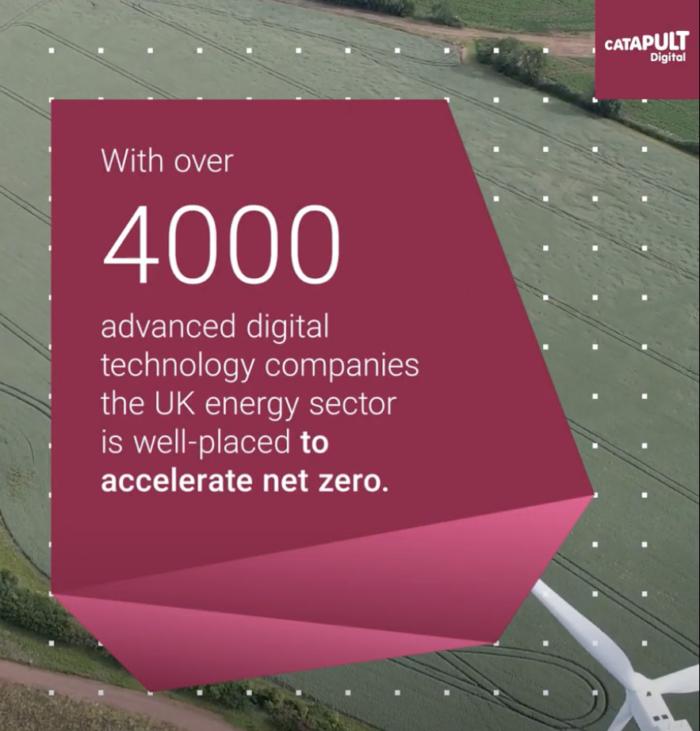
Evaluating the UK’s hydrogen potential
The UK is already a world leader in renewable energy, particularly offshore wind, and almost half of UK energy production now comes from renewable sources. Looking ahead, the UK’s entire energy network will undergo a fundamental shift in how energy is generated, transmitted, and distributed – this isn’t limited to potentially switching from natural gas to hydrogen, it also includes a variety of decentralised energy generation like more solar panels on homes and buildings that might feed energy back in the grid, and novel concepts like small modular nuclear reactors. Digitalisation is key to enabling this transition.
To streamline efforts and gain a clearer understanding of the UK’s capabilities, Digital Catapult is establishing a Hydrogen Hub. This Hub will serve as a central platform for all hydrogen-related work, making it easier to assess the UK’s potential in this vital sector.
We are now entering a period of unprecedented growth for the UK hydrogen economy. With the largest number of commercial scale electrolytic hydrogen production projects announced at once, anywhere in Europe, the UK is a world leading place to invest in hydrogen.
Rt Hon Claire Coutinho Secretary of State for Energy Security and Net Zero
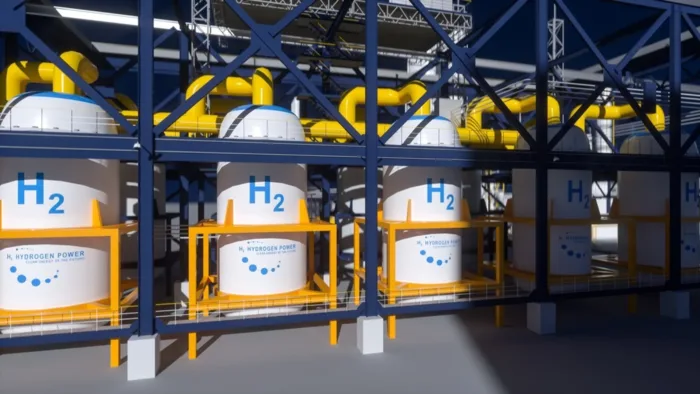
Hydrogen and Digital Catapult
As a founding member of the Hydrogen Innovation Initiative, Digital Catapult is part of a trusted consortium of organisations, and working collaboratively with industry, government, and academia, we are dedicated to building an investible, globally competitive hydrogen technology and services sector right here in the UK.
By accelerating hydrogen technologies, our aim is to not only safeguard existing UK industries by transitioning current supply chains to hydrogen technology. We also want to kickstart a new era of manufacturing and technology industries. This will create new green jobs and boost the UK economy, all while we continue our journey towards achieving our net zero targets.
To find out more about how hydrogen technologies can help solve business problems, subscribe to our newsletter.
